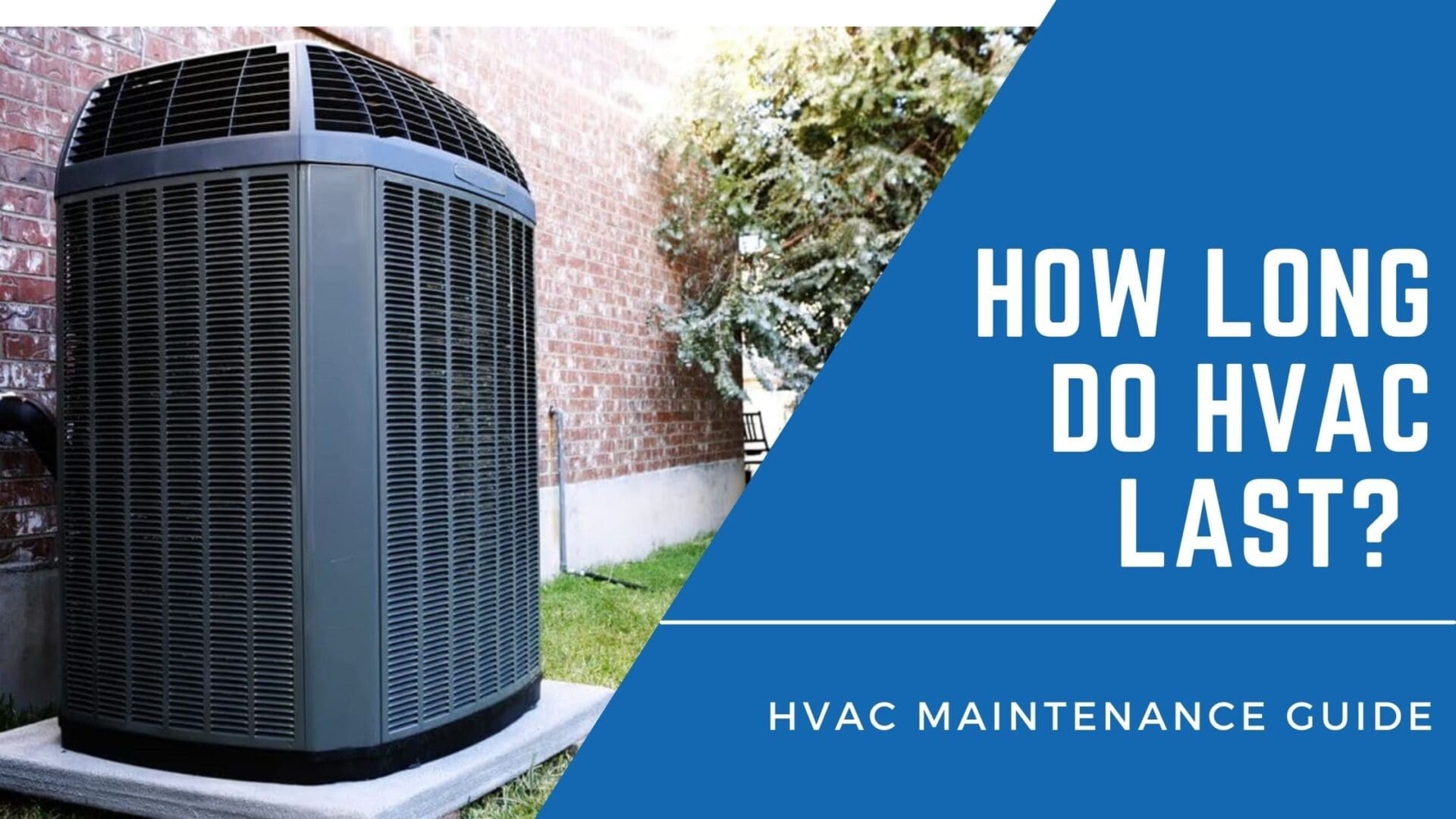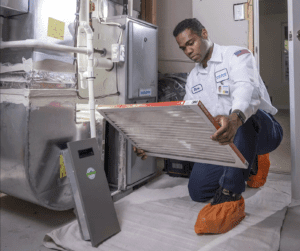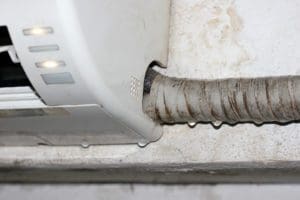
Most people only really think of their HVAC systems when something goes wrong. They worry when the hot air isn’t that hot or the cold air isn’t that cold. However, they don’t think much about how the system is holding up or the fact that it could one day stop working entirely. Unfortunately, this is the wrong way of looking at things. Understanding that HVAC systems will wear out over time lets you prepare for when you need to replace them. In addition, it allows you to consider ways to extend the life of your systems. So, how long do HVAC systems last? Can you really make them last longer? Keep reading this article to find out.
Table of Contents
Typical Lifespan per Type of System
Different HVAC systems have different lifespans. Even the elements within these systems can last for varying amounts of time.
Furnaces & Boilers
Furnaces and boilers can last 10 years or more. This makes them one of the longer-lived elements of an HVAC system.
Air Conditioners & Heat Pumps
If you’re wondering, “How long do heat pumps last?” and “How long do air conditioners last?” you may be slightly disappointed. These systems are subject to a lot of wear and tear. Because of this, they are also expected to live about 10 years or so. That said, your AC lifespan may be shorter than your furnace’s.
5 Factors Influencing System Lifespan

The expected lifespan of each HVAC system varies in years. This is because there are factors that impact these lifespans in both positive and negative ways. Understanding this allows you to seek out the positives and avoid the negatives for your system to last as long as possible.
1. Installation
The quality of your HVAC system goes back to the beginning. The quality of the installation will impact the system going forward. This is because mistakes made during installation can have ongoing effects on how the system runs, letting it run as efficiently as possible or creating problems that cause it to struggle every time it is on. For example, an HVAC installer that doesn’t take AC sizing into account may install a unit that is too small and that will wear itself out trying to cool down the entire building.
2. Maintenance
HVAC systems shouldn’t be forgotten about. They need regular maintenance. Regular maintenance allows these systems to run at peak efficiency at all times and eliminates any issues that are weighing them down. Avoiding regular maintenance allows problems to pop up and get worse over time. For example, a refrigerant leak will cause the system to run less and less effectively with every drop of refrigerant that leaves the system.
3. Usage
The more you use an HVAC system and the more intense this usage is, the faster it will degrade. Running an HVAC system at full blast for long periods of time will eventually hurt it. Meanwhile, being more sensible about your system usage will allow it to age at a more natural pace.
4. Environment
Most HVAC systems have an outdoor portion. Unfortunately, these outdoor sections of the system are constantly exposed to the elements. This means that systems located in places with more intense weather will end up wearing down quicker. The bad news is that there isn’t much you can do to prevent this outside of making sure that your unit isn’t victim to debris falling from nearby trees.
5. Quality
The quality of your HVAC system matters. A cheap system will typically be made from inferior parts and, thus, will start to fall apart prematurely. Instead, a quality HVAC system is designed to withstand the test of time. This is why picking the right system from the very start matters. You can ask a qualified HVAC technician for help choosing a model or consult an AC rating chart for more information.
With all of these factors in mind, the optimal way of managing your HVAC system becomes clear. This starts with choosing what system you want. You need to pick a quality system that is built to last for years, not one from a company known for lackluster products. Then, when this system is installed, ensure it is installed correctly. You can do this by choosing the right HVAC company for the job.
Once this system is in place, you need to manage it right. Make sure you don’t leave it running at too high of an intensity for too long. You can do this by trying not to jump from one extreme temperature to another. Instead, pick a reasonable temperature and leave the system at that.
Remember to schedule regular maintenance appointments.
Signs It’s Time to Replace Your AC

You don’t have to run out and replace your AC as soon as it hits the 10-year mark. Instead, you can be on the lookout for the signs that it is nearing the end of its life. Once these signs start to crop up, you know that your AC system is on its last legs.
These signs also give you an indication that it is no longer financially viable to hold on to your old system. Increased repair bills and energy bills are the result of running older systems past their expiration date. So, even though a new system may be a little pricey, keeping your old system running can end up being pricier. These signs include:
Frequent repairs
As an AC system starts to die, the components inside of it start to go bad. These start pretty minor and may just include a random repair now and then. However, as the system gets older, these necessary repairs will start to become more frequent. Eventually, they reach a point where the cost of the repairs ends up being more than a new unit. When this point is near or reached, replacement is the obvious choice.
An increase in energy bills
As an AC system ages, it becomes less effective at cooling. However, it is still driven to bring the room down to a specific temperature. So, to do so, it needs to try harder and harder to achieve the same goal. This results in the system running for longer periods at a higher intensity, which requires more energy. While you may not initially realize this is happening, the increased cost in your energy bills will give you a clue that something like this is happening.
Uneven temperature distribution
Older AC systems perform poorly in several different ways. One of these is temperature distribution. When systems reach their limit, they can’t uniformly distribute cool air and, instead, start to distribute it more sporadically. If you notice this is starting to happen, it may be time for either an AC tune-up or a complete replacement.
The Takeaway
HVAC systems wear out over time. You should start looking for the signs of an aging heater or AC once they hit the 10-year mark. In either case, schedule an appointment with a professional HVAC company to get your replacement started. This allows you to get rid of the problems associated with running these older systems.
Our team at Hurley & David can help you choose an energy-efficient system that will save you money. Plus, we have the best systems with the longest lifespans.
In addition to scheduling system replacement, you should also practice some good habits. This means picking the right model, making sure installation goes smoothly, and scheduling regular maintenance. A knowledgeable and professional HVAC company like Hurley & David can help you with all of this.


